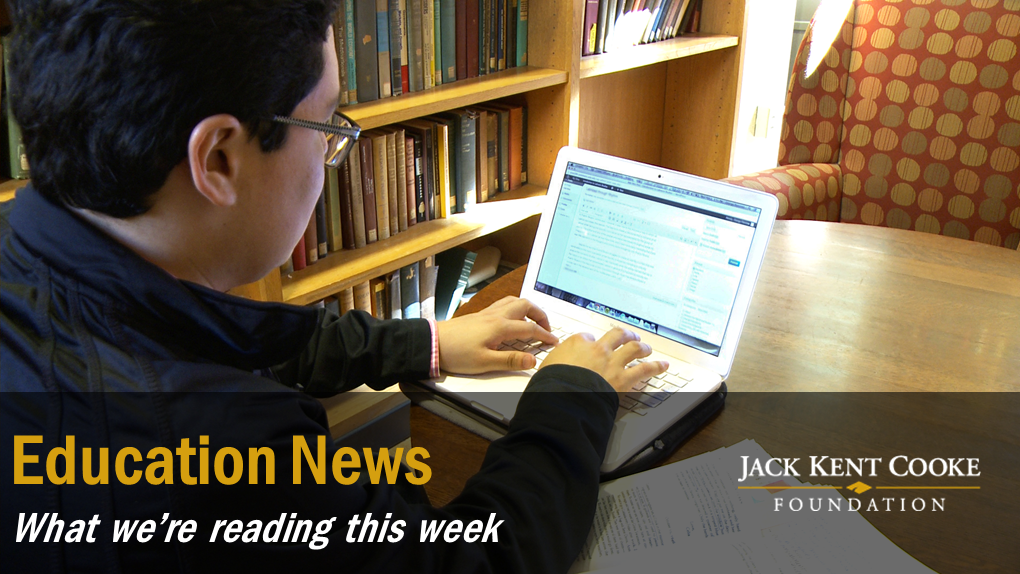July 22: Education News We're Reading This Week

July 22, 2016 – Here’s our weekly roundup of education news you may have missed. Effective directing of resources can alleviate growing income segregation in public schools. Differences among the states create varying hurdles in higher ed funding and financial aid availability.
Elementary & Secondary Education:
-
A new study finds that income segregation has been on the rise in public schools since 1990. “As communities become increasingly more divided based on income, advocacy and support for public education could decline in some areas,” states Education Week.
-
When neighborhoods become gentrified, affluent families are often able to provide increased fundraising to schools. The Atlantic cautions that “the ability can also mean wealthy families wield disproportionate influence on campus and in the PTA.”
-
Brookings highlights the cost-effectiveness of having schools provide wraparound services in order to “confront enduring achievement gaps and growing populations of low-income students.”
-
Colorado improved its students-to-counselor ratio and saved the state more than $319 million on social safety net services, reports Chalkbeat.
Higher Education:
-
“Ultimately, the college inequality gap can be closed in two fundamental ways,” says CBS News. “Dramatically boost state and federal subsidies for public universities to assist middle- and low-income students, or help families target schools that are likely to offer nonloan aid packages.”
-
Inside Higher Ed explores the feasibility of need-blind admissions, noting that such policies “appear to play a role in attracting applicants from different backgrounds and can even lead to a fund-raising boon.”
-
A working paper from The Wisconsin HOPE Lab (PDF) determines: “Nearly half (45.6%) of Pell-eligible students living in states with deadlines or known suspension dates for need-based grants under-file the FAFSA, submitting it after those deadlines have passed.”
-
Colleges can no longer direct students to use specific bank accounts for depositing their financial aid balances. The New York Times explains new federal rules and the options for college students.
Cooke Foundation Highlights:
-
Last Thursday, Malcolm Gladwell’s Revisionist History podcast focused on how colleges and universities can better allocate resources to support low-income students. The Portland Press Herald and Inside Higher Ed both cite statistics from our “True Merit” report in their responses to Gladwell’s piece.
-
In Transfer Ways, Cooke Scholar Isla Martinez shares tips for community college students who are interested in applying for our Undergraduate Transfer Scholarship.